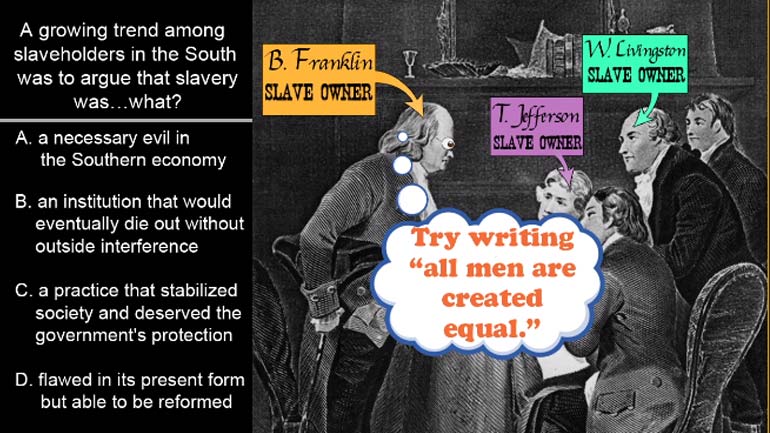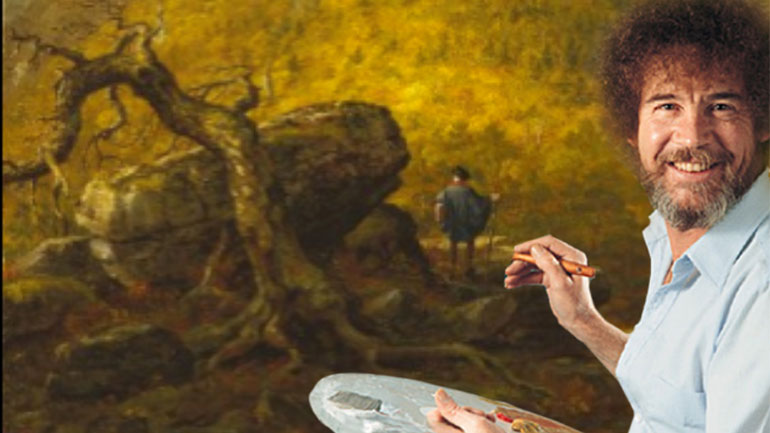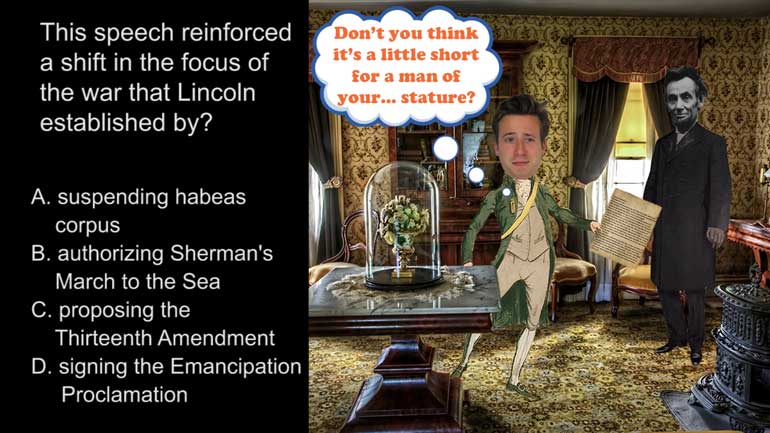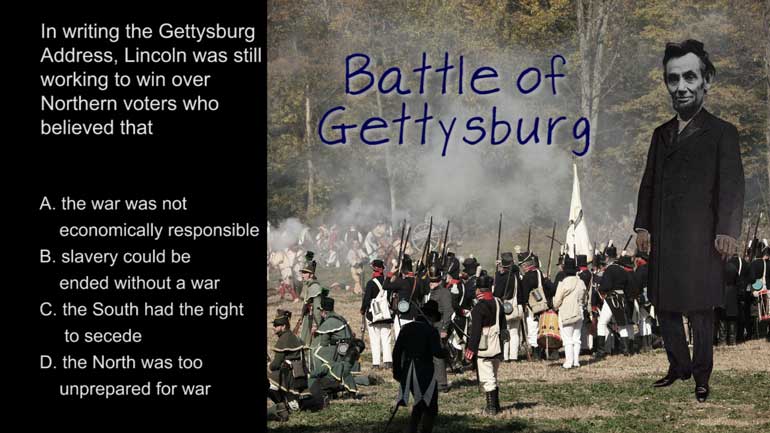ShmoopTube
Where Monty Python meets your 10th grade teacher.
Search Thousands of Shmoop Videos
Period 4: 1800-1848 Videos 18 videos
AP U.S. History 1.1 Period 4: 1800-1848. The "separation" that the American Colonization Society advocates for is...what?
AP U.S. History 1.2 Period 4: 1800-1848. A growing trend among slaveholders in the South was to argue that slavery was...what?
AP US History: Politics in Antebellum America Drill 1, Problem 1. Expanding government and regulation into the Louisiana territory proved chal...
AP U.S. History 2.2 Period 4: 1800-1848 251 Views
Share It!
Description:
AP U.S. History 2.2 Period 4: 1800-1848. Many affluent woman responded to the economic trend that Robinson describes by...what?
Transcript
- 00:00
[ musical flourish ]
- 00:03
And here's your Shmoop du jour, brought to you by the cult of domesticity,
- 00:07
the one true religion for Swiffers.
- 00:10
All right, give this excerpt a read.
- 00:12
[ mumbles ]
Full Transcript
- 00:16
[ mumbling continues ]
- 00:17
All right, and the question:
- 00:19
Many affluent women responded to the economic trend that
- 00:21
Robinson describes by... doing what?
- 00:24
And here are your potential answers.
- 00:29
All right, what's this question asking?
- 00:30
Well, the economic trend of women working outside of the home
- 00:33
was a big change for people of all classes,
- 00:34
but this question specifically wants to know about
- 00:36
the reaction of women at the top of the societal heap.
- 00:40
So let's see if we can figure out which answer makes the most sense.
- 00:42
Did affluent women respond to women entering the workforce
- 00:46
by A - vocalizing their support for women's rights?
- 00:49
Well, actually, upper class women saw the movement
- 00:52
to work in factories as a huge threat
- 00:54
to traditional motherhood,
- 00:55
so they went out of their way to criticize
- 00:57
the poorer women who were seeking opportunities outside of the home.
- 01:01
Given this disdain toward labor for women,
- 01:03
we know there was no way they'd be caught looking for a job themselves.
- 01:07
That eliminates A and B.
- 01:08
Did wealthy women respond by
- 01:10
D - pressuring legislatures to reform labor laws?
- 01:13
While many segments of the population were in fact
- 01:16
pressuring government officials to reform dangerous labor practices,
- 01:19
women in the upper class believed these women were
- 01:21
putting themselves in danger by even showing up
- 01:23
to work in the first place, so D is a no-go.
- 01:26
Therefore affluent women must have
- 01:28
responded to the trend by C -
- 01:30
advocating that a woman's true place was in the home.
- 01:33
In a reaction to what wealthier women saw as
- 01:36
an attack on traditional female roles,
- 01:38
the upper classes formed what historians
- 01:40
call a cult of domesticity,
- 01:43
which emphasized purity,
- 01:45
submission, and piety as the ultimate feminine virtues.
- 01:49
We have our answer.
- 01:50
Kind of gives a whole new spin to the term
- 01:52
"real housewives."
- 01:56
[ baby cries ]
Related Videos
AP U.S. History Exam 2.45. The journey shown on the map was an example of...what?
AP U.S. History Exam 2.26. This speech reinforced a shift in the focus of the war that Lincoln established by...what?
What did the Spanish messengers bring with them to North America? Hint: you probably wouldn't be thrilled to get this for your next birthday.
AP U.S. History Diagnostic 24. How did the United States choose containment over the National Security Council Report in Latin America?
AP U.S. History Exam 2.25. In writing the Gettysburg Address, Lincoln was still working to win over Northern voters who believed that...what?





















